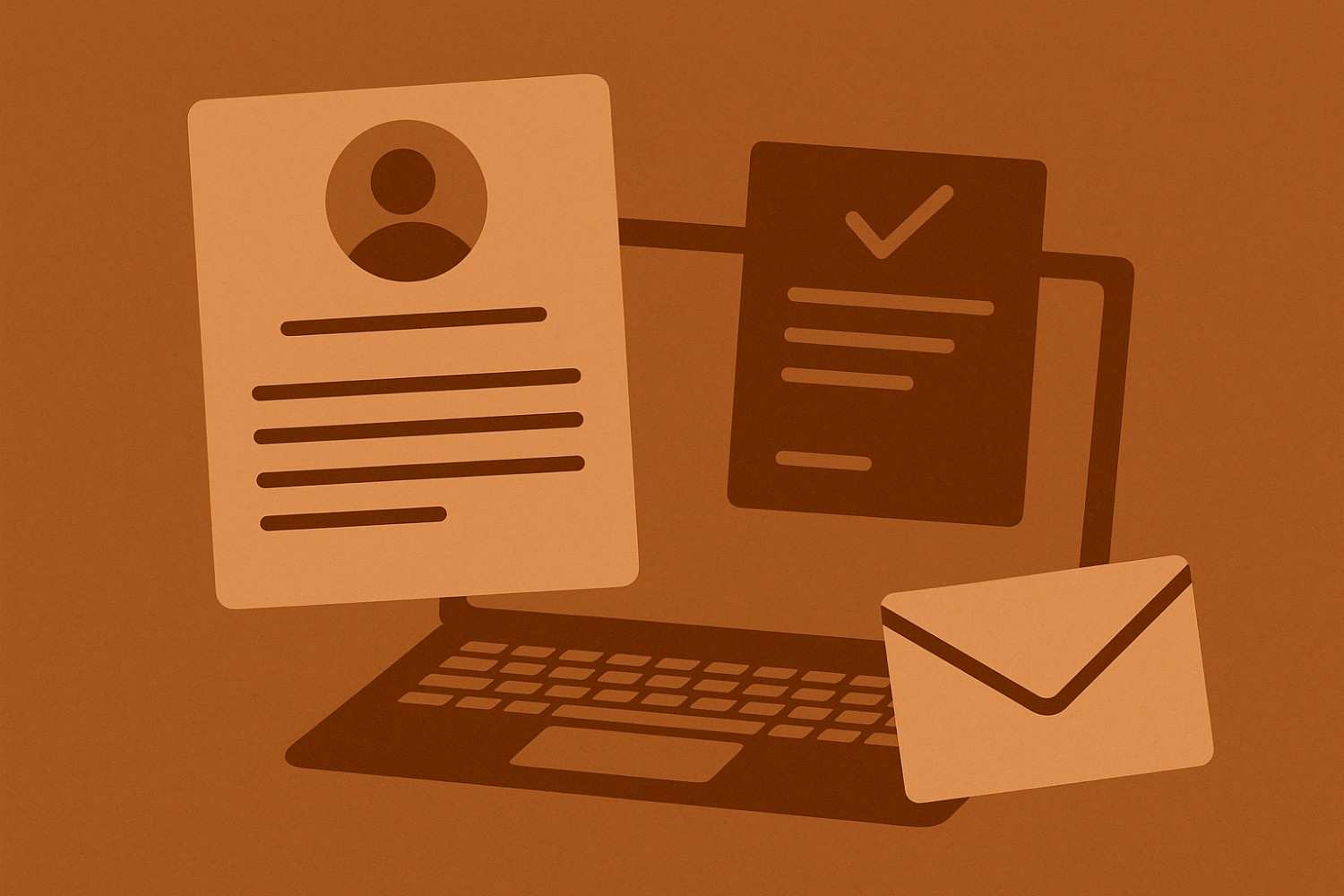Remote Work Skills Employers Are Looking For in India

Explore the best remote jobs hiring in 2025 across tech, content, design, and more. Find out where to apply, what...

Applying for a remote job? Learn the best resume format for remote roles and see cover letter examples tailored for...
.jpeg)
Looking for remote work in 2025? Discover top companies actively hiring for remote roles and how to stand out in the...

Freelance or remote? Compare flexibility, pay, job security, benefits, and lifestyle to decide the best...

Prepare for remote interviews with confidence. Explore common remote job interview questions, expert tips, and...

Find top-paying remote jobs in India across tech, marketing, and design. Learn about lucrative work-from-home...

Remote work demands cloud, cybersecurity, data analysis, strong communication, time management and collaboration and...

Learn how freshers can land a remote job with no experience. A practical, timeless guide to finding remote work...

Find part-time work-from-home jobs ideal for stay-at-home moms and housewives looking to balance family and income.

Gain access to top remote job opportunities with work-from-home tips and global hiring companies to launch your...
Resources
-

Set up personalized job alerts to receive notifications about new job openings that match your...
-

Find part-time job opportunities perfect for students, parents, and professionals seeking...
-

Work from home jobs across industries with flexible hours, competitive pay, and real career...
-

Create professional resumes with easy-to-use resume builders. Choose from templates, get...
-

Kickstart your career with internships tailored for students and graduates — explore paid,...
-

Remote jobs have revolutionized how we work, giving professionals the freedom to contribute from...
-

Find the best fresher jobs and entry-level opportunities across IT, Finance, Marketing, and...

Remote work has evolved from a temporary solution to a permanent fixture in the professional landscape. In 2025, more organizations than ever are hiring remote employees, offering flexible roles that allow individuals to work from the comfort of their homes or any location globally.
However, landing and excelling in these roles requires more than just a good internet connection — it demands a very specific set of remote work skills.
Whether you’re a fresher, job switcher, or freelancer, this guide will help you understand which remote job skills are crucial in 2025 and how you can develop and showcase them to attract top employers.
Why Remote Work Skills Are More Important Than Ever
As the remote workforce continues to grow, the skills employers are prioritizing have shifted. It’s not enough to simply have technical knowledge. You need to show that you can communicate clearly, collaborate across time zones, manage your time efficiently, and adapt to ever-changing digital tools.
Companies hiring remotely are increasingly global, fast-paced, and focused on results. Without in-person interactions, your ability to perform, self-manage, and maintain accountability becomes essential.
Therefore, candidates who demonstrate strong soft skills along with core job capabilities stand out.
Ready to find your perfect remote role? Explore jobs on JobPe and start building your profile now.
Top Soft Skills for Remote Work in 2025
1. Communication Skills
Perhaps the most crucial skill in remote work is communication. Without face-to-face interactions, your ability to convey ideas, listen actively, and clarify expectations becomes essential. Whether through email, messaging apps, or video calls, remote workers must express themselves clearly and professionally.
What to work on: - Writing concise emails and Slack messages - Speaking clearly during video meetings - Offering and receiving feedback constructively
Use the JobPe Mock Interviews tool to practice answering questions and explaining your thought process out loud.
2. Time Management
One of the greatest benefits of remote work — flexibility — can also become a challenge. Employers want to know that you can manage your workload and meet deadlines without constant supervision. Effective time management shows maturity and reliability.
Key habits to build: - Create daily to-do lists - Use digital calendars and task managers - Set boundaries to avoid overworking
3. Self-Motivation
Without the structure of a traditional office, self-motivation becomes a key differentiator. Can you stay productive without supervision? Can you start and finish tasks independently?
Remote teams appreciate proactive workers who don’t wait to be told what to do. Show this trait through your side projects, internships, or freelance work. Highlight such experiences in your resume using JobPe Resume Builder.
4. Adaptability and Flexibility
Remote teams work across countries, time zones, and tools. Changes in software, goals, or roles happen frequently. Employers want people who can adjust quickly without frustration.
How to show adaptability: - Share a time you learned a new tool quickly - Talk about thriving in a dynamic environment - Stay open to feedback and evolving workflows
5. Problem-Solving Skills
Remote workers often need to figure things out on their own. Employers value individuals who can troubleshoot issues — whether it’s technical, operational, or interpersonal.
Improve this by: - Taking initiative to research solutions - Participating in online forums and learning communities - Handling small issues independently before escalating
6. Collaboration and Teamwork
You may work alone, but you're rarely truly isolated. Remote collaboration is vital. This includes respecting deadlines, attending virtual meetings, and actively contributing in group chats.
Best practices: - Communicate your availability - Use collaborative tools effectively - Respect diverse working styles across cultures
Want to prepare for team-based interview scenarios? Try the Mock Interview practice at JobPe.
7. Emotional Intelligence
Remote communication lacks facial cues and body language. That’s why emotional intelligence — your ability to understand, empathize, and respond appropriately — is more important than ever.
How to show EQ: - Remain patient in emails and chat - Acknowledge others’ efforts publicly - Handle disagreements diplomatically
8. Accountability and Reliability
When working remotely, there's no manager watching over your shoulder. Being accountable for your work and meeting deadlines is vital.
Demonstrate reliability by: - Maintaining a consistent work schedule - Following through on commitments - Updating stakeholders regularly
Top Technical Skills for Remote Work in 2025
1. Digital Literacy
At the foundation of all remote jobs is digital proficiency. Every role requires familiarity with tools for communication, collaboration, and productivity.
Tools to master: - Google Workspace (Docs, Sheets, Drive) - Zoom, Slack, Notion, Trello - Cloud storage platforms
Being digitally literate means you can pick up new platforms quickly, manage your tasks online, and navigate remote tech challenges independently.
2. Project Management Tools
Many remote teams rely on digital project management systems to stay organized and track progress. Whether you’re a manager or a contributor, understanding how to use these tools is crucial.
Popular tools: - Asana - ClickUp - Monday.com - Jira
You can also improve your project planning skills through certifications or online courses.
3. Cybersecurity Awareness
Remote employees are often responsible for securing their own networks and devices. Employers seek candidates who understand basic online safety protocols.
Best practices include: - Using two-factor authentication - Avoiding public Wi-Fi without a VPN - Securing personal devices
Cybersecurity is especially critical in industries like finance, healthcare, and law.
4. Data Analysis and Reporting
Data drives decisions across industries. Understanding how to interpret and present data sets you apart.
What to learn: - Excel or Google Sheets - Data visualization tools (Tableau, Power BI) - SQL basics
You can improve these skills with JobPe Coding Practice or free data bootcamps online.
5. CRM and Marketing Tools
If you’re in marketing, sales, or customer success, fluency in Customer Relationship Management (CRM) systems is a must.
Most common tools: - HubSpot - Salesforce - Mailchimp - Zoho CRM
Mastering these tools boosts your value in remote job markets.
6. Coding and Technical Development
For developers, web designers, or IT roles, coding skills are non-negotiable. Remote tech roles continue to dominate job listings.
Top technologies to learn: - Python, JavaScript, HTML/CSS - Git and version control - APIs, cloud platforms like AWS or Azure
Want to get started? Practice live problems on the JobPe Coding Platform.
How to Showcase Remote Work Skills in Job Applications
Having the skills isn’t enough — you must demonstrate them clearly. Here’s how:
Optimize Your Resume
Use the JobPe Resume Builder to highlight: - Remote tools you've used (Slack, Notion, Trello) - Examples of working independently or on global teams - Soft skills like time management or communication
Craft a Thoughtful Cover Letter
Show your understanding of remote work culture. Highlight real examples: - “Led a virtual team to launch a marketing campaign” - “Handled client onboarding entirely through Zoom and Notion”
Ace Virtual Interviews
Employers will ask questions specifically about remote readiness. Use the JobPe Mock Interviews tool to prepare for: - “How do you stay productive at home?” - “How do you collaborate with teammates in different time zones?”
Tips to Develop and Strengthen Your Remote Skills
- Take online courses in project management, digital communication, or coding.
- Join remote work communities on Slack or Discord to learn best practices.
- Freelance or intern remotely to build real-world experience.
- Request feedback from peers and managers regularly.
These steps not only develop your skillset but show future employers that you’re committed to growing in a remote environment.
Use JobPe Tools to Power Your Remote Career
Explore JobPe’s suite of resources designed specifically for remote job seekers:
- Resume Builder – Create job-winning remote resumes
- Mock Interviews – Practice virtual interview scenarios
- Interview Questions Bank – Prepare for behavioral and technical questions
- Coding Practice – Strengthen your developer profile
- Auto Apply Tool – Speed up your job search
- Company Explorer – Research remote-friendly companies
- Salaries Database – Benchmark pay expectations for remote roles
Final Thoughts
Remote work in 2025 is not just a perk — it's a competitive, fast-growing career path that demands strong skills, digital fluency, and emotional intelligence. By mastering both soft and technical remote work skills, you can position yourself as a top candidate in any industry.
Take the first step by upgrading your resume, practicing your pitch, and applying to jobs that align with your strengths. Start your journey today at the JobPe Blog for more insights and career guides. Learn more about our mission on the About JobPe page.
The tools are out there. The jobs are open. It’s your skills that will unlock the door.
